- Category
- Perspectives
Exposing Russia’s Colonial Playbook with Ukrainian Journalist and Author Maksym Eristavi
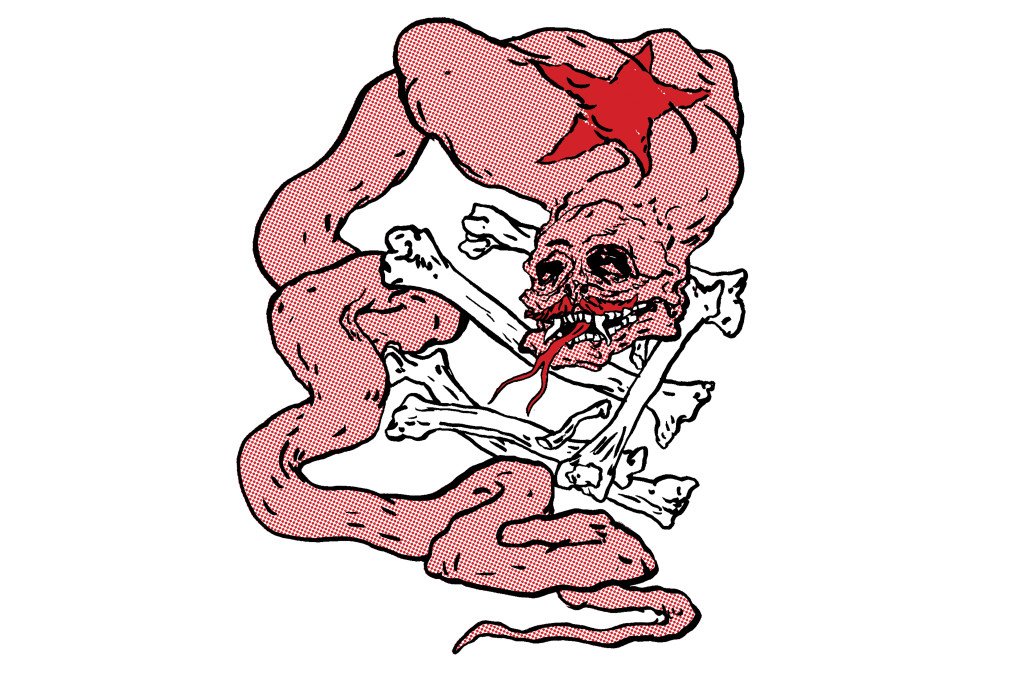
For over a century, Russia has followed a brutal colonial script: gaslight, invade, exterminate. With 48 invasions in the last 100 years alone, Moscow has nearly succeeded in erasing its crimes from history, leaving the world blind to its bloody legacy.
Maksym Eristavi, a Ukrainian journalist and author of the award-winning guidebook Russian Colonialism 101, is fighting this global ignorance that shields Russia from accountability. As the current invasion of Ukraine unfolds, one question remains: will the world continue to overlook the abuser?
In your book, you mention that much of the information about Russian colonialism is publicly available and highly accessible. Yet, Russia has consistently sought to undermine common sense and cover up its crimes. How challenging is it to sift through and gather this information without books like yours?
For centuries, the Russian Empire invested so much into covering up and erasing any Indigenous knowledge, or any knowledge that would expose the evil deeds of the empire. Even in our digital age, this body of knowledge is not as rich and diverse as it could have been. But, even with so many millions of voices silenced or erased… It's still out there. It's hard for people to connect all the dots and see a serial pattern of behavior behind something that could appear unconnected.
This is exactly the idea behind the book. At least through one manifestation of Russian colonialism—namely, invasions of sovereign nations over the last 100 years—you can connect the dots and see a consistent pattern of abusive behavior toward others. What is happening now in Ukraine with ongoing genocide during the full-scale Russian invasion—is not Putin's war, it’s Russia’s war. It has been happening many times before to so many other places and so many people.
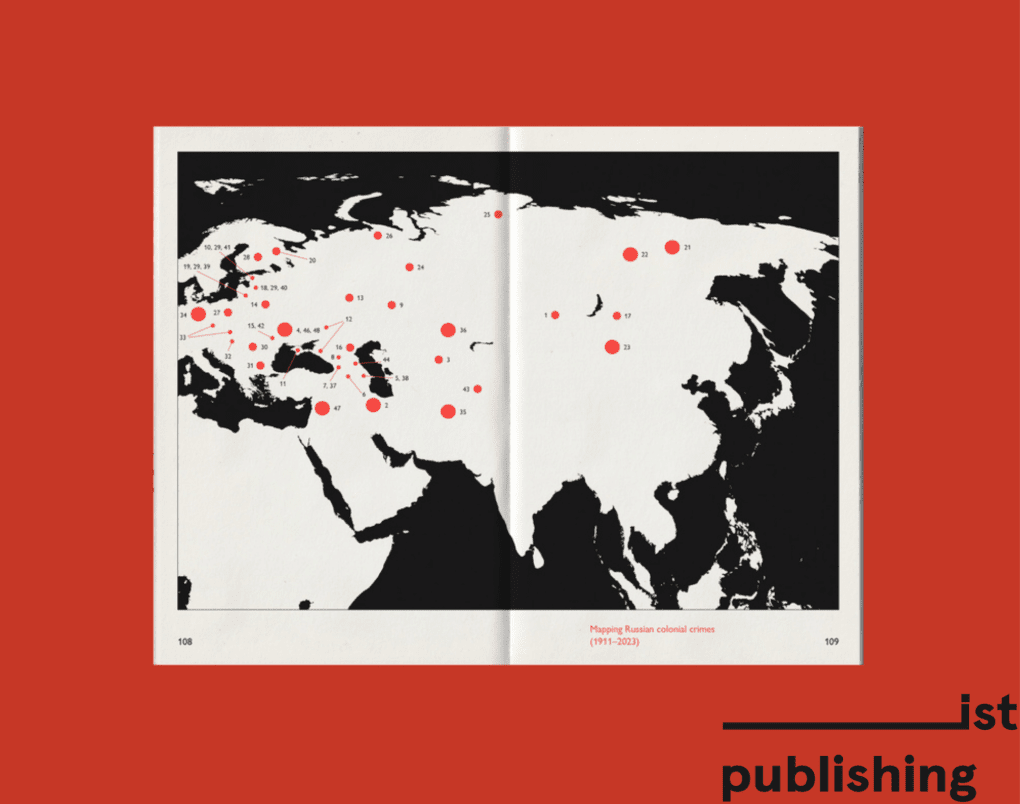
Russia’s colonialism over the past 100+ years is described in the book as “gaslight, invade, exterminate,” citing 48 invasions. Could you expand on this formula and its significance?
The phenomena of colonialism and imperialism often appear to the general public as something very complicated. Some people see it as fragmented. I'm still learning about it every day.
It was important to break down this complex phenomenon into something simple that could be understandable for everyone else so the rest could see the same patterns that I, as a journalist, can see in these various manifestations of Russian colonialism.
With the Russian empire—colonial empire—and phenomena of Russian colonialism existing for over 400 years, the amount of these invasions, genocides, and colonial crimes, unfortunately, is more than that. When it comes to invasions per se, there's a simple formula that, in my research, I see crystallized around a century ago.
It consists of these three steps—Gaslight, Invade, Exterminate.
Gaslighting is mostly about the mythology and excuse: why I'm coming to your home and why I have the right to do so. Usually, it revolves around simple lies, for example, “You need my help, you need my protection.” Or “I came to liberate you, I came to civilize you; I came to help you. I will occupy your home to help you,” and so on. It will take many forms, but this gaslighting is important to lead the victim and the rest of the world to believe that there is no abuse happening. That it is an act of goodness, an act of just “saving” or “liberating.”
Invading follows very specific formulas that have been perfected over many invasions. Usually, it means instigating the internal divide or using any fissures within these societies to exploit them, to show that there is no unity. And that, once again, the situation just invites the “savior”.
Exterminating, unfortunately, usually takes two forms. First of all—it’s physical exterminating because Russian colonialism is settler colonialism and it thrives on clearing up the lands (the occupied lands) to repopulate them with Russians. In a generation or two, you can claim that this land has always been Russian. Exterminating comes in, killing as many people as possible. However, they cannot kill everyone because they still need a workforce and they still need to sustain the occupation economy. That’s why extermination also happens on the level of identity since Russification and erasing Indigenous identities are also a very important part of the occupation.
Erasing identities is one of the most important manifestations of Russian colonialism.
Maksym Eristavi
Author of the guidebook Russian Colonialism 101
How are Indigenous cultures being erased? How are you being gaslit into thinking your Indigenous culture is secondary or not important enough? These are very important topics that most foreigners abroad do not even realize exist.
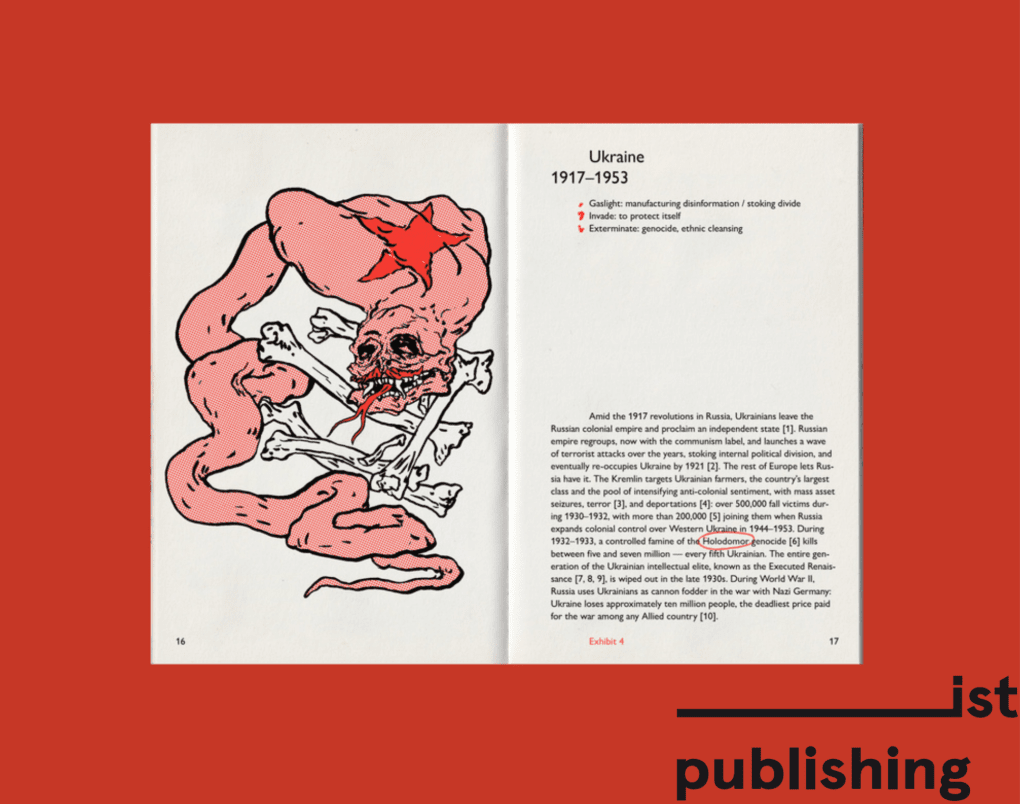
It’s striking how Russian tactics, though slightly modified over time, have remained largely the same—both historically and in the current invasion of Ukraine. Why do you think these tactics continue to work?
A simple answer could be a lack of accountability. Every chapter in this book is your reminder that Russian rulers come and go and Russian regimes under various names keep changing but the serial behavior of colonial, imperialist abuse stays no matter who's in charge in Moscow or Saint Petersburg. No matter who’s in charge of the Empire. The biggest problem is that, unlike other colonial empires in history that face some kind of accountability, maybe some shaming… Russia doesn’t.
For example, suppose I come forward and, say, start whitewashing the crimes of British colonialism or Spanish or French. In that case, I'd probably be universally shamed and canceled because this is unacceptable. This is frowned upon. But when it comes to similar or identical crimes of Russian colonialism that have been perpetrated for several centuries, there’s not even an understanding or awareness that this is happening in the same pattern and it has the same features.
This is where Russian propaganda has traditionally worked so well, by presenting the colonialism and imperialism that Russians have done as something else, presenting themselves as “champions against colonialism and imperialism,” although they were doing the same crimes behind the Iron Curtain of the Empire.
Accountability cannot come without knowledge. Justice cannot be served if there's not even knowledge of what has happened. Unfortunately, with so many crimes and with such an extended period, there are few people outside of Russia or the societies that were affected by Russian colonialism, that are aware of the extent of it. This is the biggest obstacle to ending this lack of awareness. There's not that much accountability happening.
Even as we are witnessing another Russia-committed genocide in Ukraine, would you say that there is a lot of accountability happening now?
Maksym Eristavi
Author of the guidebook Russian Colonialism 101
The guidebook is an entry point not only for foreign audiences but also for those with intimate knowledge of Russian colonialism. At numerous book events and meetings, many people from affected communities—despite understanding what Russia is, what it has done, and what its colonialism stands for—often say, “Even though I was partly aware of our own history, I had no idea so many others went through something similar.”
The geographical span of Russian colonialism is such. Why? Even today if you look at the map you see Russia is the biggest country by territory on Earth. That didn't happen by handshakes, hugs, and brotherhood—that happened through the very brutal imperial conquest and there are so many stories that were erased, stories we never heard of. This is a unique opportunity to start telling them.
We wanted to feature as many voices and as many names as possible to ensure that this is not just a conversation about some general things but honors the memory of tens of millions who resisted Russian colonialism.
When we feature the stories from the communities I don't represent, it was important for me to ensure that this book is not told by just the Ukrainians. The stories have ownership within the community that we try to highlight and amplify. When we were doing this book together—me, the publisher, also 10+ Ukrainian war-time artists who produced breathtaking art to carry the message of this book, we reached out to so many researchers and community members that we featured to ensure that everything was cross-checked and we didn’t misrepresent the facts.
For so many generations, our stories—of people who survived Russian colonialism—have been always told through the prism of Moscow.
Maksym Eristavi
Author of the guidebook Russian Colonialism 101
Whatever the rest of the world knows about us, they know through the stories that Russians told them. Historically we had few chances and opportunities to be heard on our own merit, to tell our own stories in our own words. That's why, still to date, it's not a necessarily mainstream thing to hear Qazaqs talking about the legacy of Russian colonialism in Qazaqstan or Ukrainians talking about the legacy of Russian colonialism in Ukraine and so on.
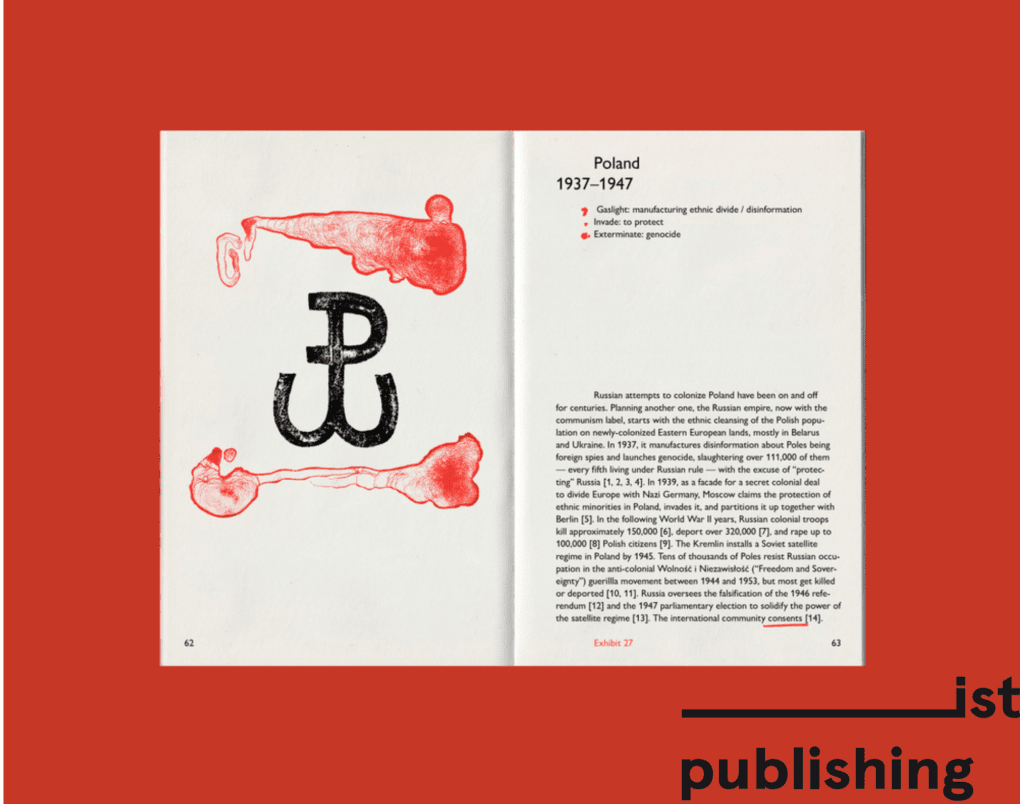
Language plays a crucial role in your book, referring to countries by their proper names (e.g., Kazakhstan as Qazaqstan, Georgia as Sakartvelo). You also avoid framing Russian invasions as “the Ukraine war” or “the Chechen war,” since such names erase Russia as the perpetrator. What do you think about the role of the language when addressing Russian colonial crimes?
I'm a journalist. Language for me is everything. This is the first and the most central issue when we address the issues of justice, decolonization, and fairness. Unlike many other European colonial empires, the process of assimilating and Russifying—turning the colonized people into something that either has no roots or is as close to this imperial identity of being Russian as possible—is a very specific feature of Russian colonialism per se.
Other European colonial Empires often would build these walls between the colonized people and the colonizers. If you come from a colonized society, there were little chances for you to be on par or equal or advanced in the society of the colonizer.
In Russia, it wasn’t the case. One of the most important instruments for assimilation policies was the language. If you want to become part of the so-called more civilized society or speak the proper language—as Russians like to point out “civilized” language—you need to know Russian, you need to speak this language and all the knowledge has to be recorded in that language.
It led to absolutely horrific situations where entire knowledge in colonized Indigenous languages is lost. We've just finished the first season of our audio show called “Matryoshka of Lies,” which is based on the book that we've done together in partnership with Ukrainska Prava. For one of the episodes, I interview a prominent Qazaq scholar (Diana T. Kudaibergen—ed.). She was working on the issue of Qazaq national identity and its forming at the beginning of the 20th century. When she started working within Qazaq archives, expecting, as a researcher, to find a very rich amount of information in Qazaq about the history during the Russian or colonial occupation, she was shocked to find most of the transcripts of that era missing huge chunks of conversations, just because the transcript was in Russian. There is a line, “The conversation continued in Qazaq.” Which were hours of conversations just missing, because recording the knowledge in Qazaq wasn’t considered as something of value.
The idea was that if you speak Qazaq, Ukrainian, or Georgian—these are some barbarian languages. Probably you won't be able to express your thoughts intelligently anyway. It was important for me to serve a bit of that historical justice—to name the people by their own names, the names that existed before Russian colonization, the names that are not Russified. To say Kyiv and not Russified “Kiev,” to write Qazaqstan through decolonized original way, not through Russified—Kazakhstan—way.
The story that I always like to share is one of Crimea. Which is one of the central pieces in Russian Imperial mythology, one they like to call “the heart of Russia.” If you just follow Russian propaganda, you might have an impression that Crimea is something anciently Russian, has always been part of Russia, and Russians have always been living there. In fact, what happened: Russians arrived in this part of Europe, barely 200 years ago, and committed multiple acts of genocide against the Indigenous population. When the last one happened to the entire Indigenous nations of Crimea—deported from this region after World War II—Russians just renamed all the streets and all the geographical locations. Any trace that this land belonged to someone else was erased. They put monuments to Russians at every corner.
Language and proper names—calling people by their own names—is already a small act of anti-colonial resistance on its own.
Maksym Eristavi
Author of the guidebook Russian Colonialism 101
Your book highlights many of Russia’s colonial successes, but there are notable failures. What can we learn from these Russian failures, particularly in the context of the anti-colonial fight?
When people first came across this book—I remember we were doing the world premiere at the Frankfurt book fair—one woman came to me, took the book in her hands, and started flipping through the pages. She turned to me and said, “I didn't know that the extent of this violence and tragedy is so big. I feel utterly depressed now that I realize we didn’t know about it for so long. How to even ensure that justice has been served, considering how much damage has been already done, how many lives were robbed?”
I remember pointing out that, first of all, there are so many chapters in there that tell a story of successful resistance in the most unlikely places. Like Lithuania, a relatively small nation where a huge Empire was defeated several times by just the acts of ordinary bravery and resistance by ordinary Lithuanians. There are so many other similar stories.
Not a single place, where Russian colonial boot came, stopped resisting. There was always resistance.
Maksym Eristavi
Author of the guidebook Russian Colonialism 101
In each of these 48 examples, people resisted as hell. Sometimes it wasn't successful, sometimes it was a success. This is what’s important. As Ukrainians are now resisting another wave of Russian colonization, where we see this horrible colonial war unfolding, lots of people are trying to find as much inspiration as possible to resist in other places as well. Let's not forget that. There are so many nations still trapped within the Russian empire as we speak, being used as canon fodder, their identities being erased, Russified.
As Dr. Timothy Snyder, one of the most prominent historians, likes to point out—all empires fall apart. That's the trajectory that we've seen in history over and over again.
One of the most painfully recurring phrases in the book is “the international community consents.” What lessons should the international community learn when reacting to Russian crimes?
Ukraine must win. This conversation or my work would not be possible if there was no Ukrainian resistance and the sacrifices the Ukrainians are going through daily. Empires do not fall apart in just hugs, peace deals, and negotiations. Empires start falling apart through military defeats.
This is the fight that Ukraine must win and the rest of the world needs to ensure that happens. Unfortunately, this fight now involves other tyrannies, acting together with Russia to ensure that Russia wins.
The second is justice which must be served once Ukraine wins. The rest of the world should not make the same mistake, hitting the reset button over and over again and hoping for a different result.
Unless there are specific steps taken to ensure that Russia is disarmed, while nations within Russia who are still trapped and colonized have the right to proclaim their own sovereignty, with the rest of Russia going through the process of disintegrating, no other result can come. Apart from other iterations of the same Empire.
To escape accountability, Russian rulers and Russian society often pretend it’s just the problem of one person, whether it's Putin, Stalin, Lenin, or Peter I. “Once we get rid of that one person, everything else will become normal.” Russian rulers change, but these abusive tactics of Russian colonialism and imperialism stay.
If the culture of imperialism is not addressed through reckoning within Russia and within the international community that allowed it to stay for so long, I don't think that we can move toward peace and justice; move toward fixing anything without this realization.
Maksym Eristavi
Author of the guidebook Russian Colonialism 101
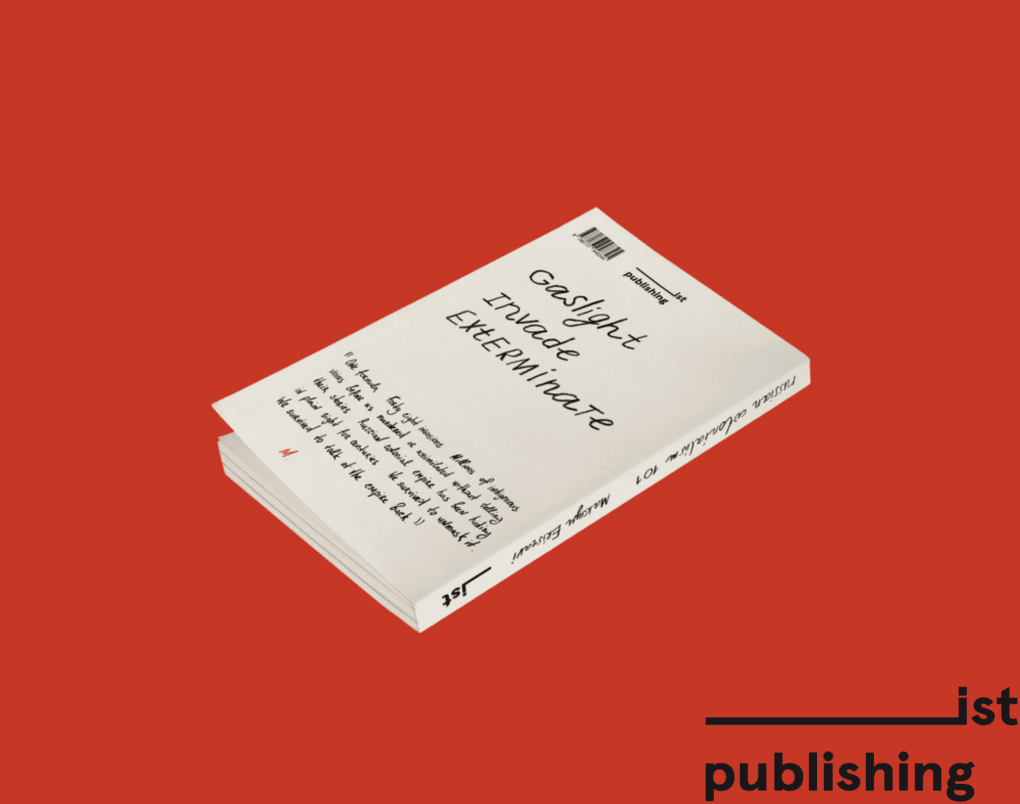
These topics are still so controversial to many abroad. Getting these stories out is still not as easy as it should be. The culture of just looking at Russia through the prism of exclusively Russians has to stop. The people who understand Russia—people like Ukrainians, Qazaqs, Lithuanians, Estonians, and many more who suffered Russia’s abuse, need to have the platforming they deserve after so many generations of not being heard.
I want people to ask themselves hard questions. Is this book something that I can find in my bookstore? Is this information easily accessible? Are these names, places, and nations mentioned in our school programs? Debated in our universities?
Huge gaps in knowledge are still there. It scares me to realize that these knowledge gaps are not just something that people don't know. It affects catastrophically bad policy decisions.



-588ae190d45987800620301cc34e2cf8.png)

-886b3bf9b784dd9e80ce2881d3289ad8.png)

-c42261175cd1ec4a358bec039722d44f.jpg)
-46f6afa2f66d31ff3df8ea1a8f5524ec.jpg)